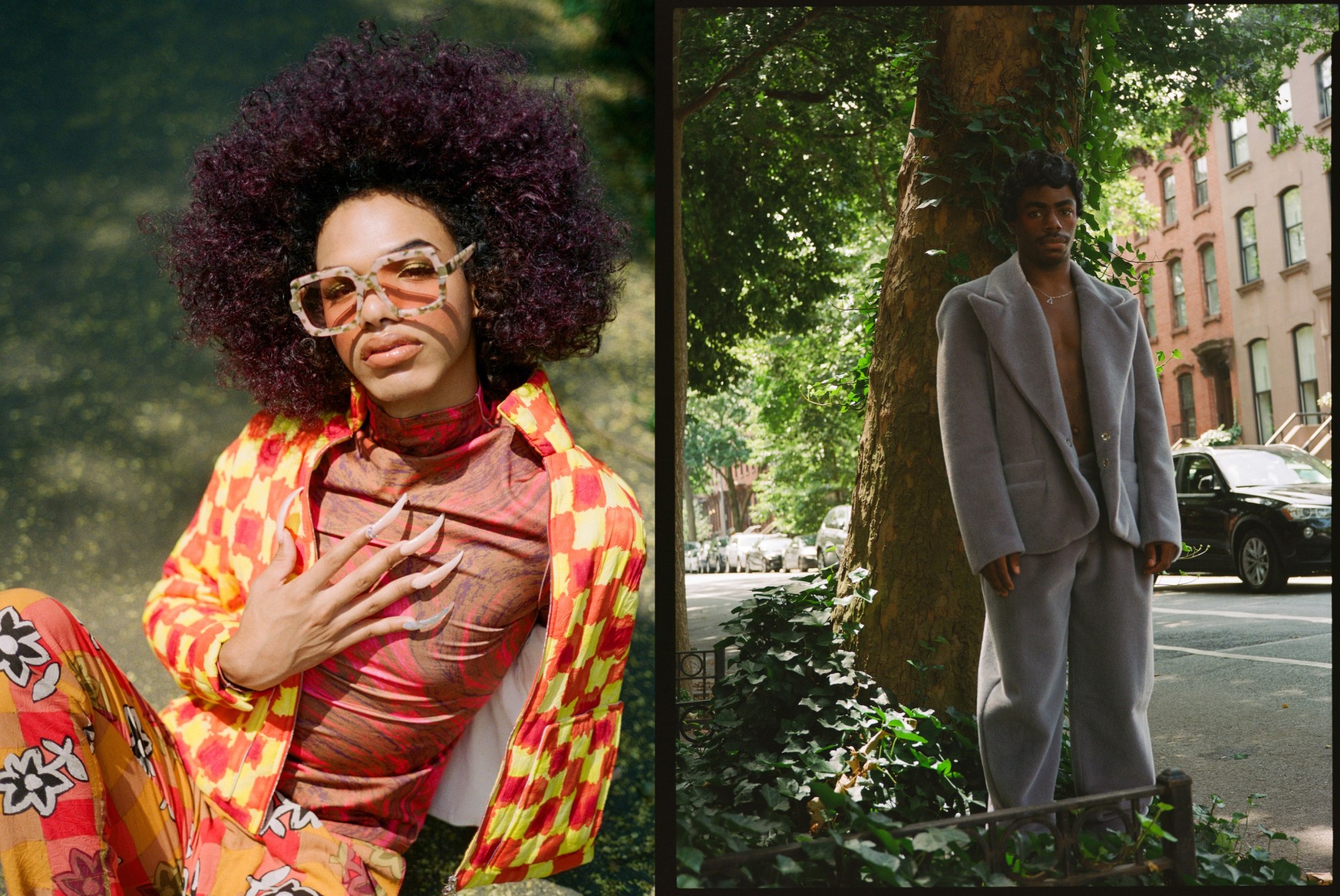The result of the most important US election in modern history has inspired new cause for hope in America — not least for members of the
marginalised communities that have been subjected to institutional punishment over the past four years. Though it would be naïve to argue that Biden’s incumbency is an automatic byword for the profound systemic change that’s been called for, it signals that we’re at least heading in the right direction for it to be brought about. Pivotal as this fresh chapter of American history will prove, the people most palpably shifting society’s course towards a more equitable future are not those who hold power today, but rather those who will tomorrow. The people who have taken to the streets in their millions to take part in yearly women’s marches, protest the country’s lax firearms regulations, fight for the rights of Indigenous populations to land on which they live, and, most recently, unambiguously state that Black Lives Matter.
Among them, America’s women, queer and trans people of colour have demonstrated an alchemistic capacity to convert their experiences of brutal adversity and trauma into fuel for hope. They have adamantly asserted their right to representation in spaces they’ve long been excluded from, as well as their right to full control over their narratives within them. Here, six inspiring women, queer and trans New Yorkers of colour share their thoughts on life in the city in the wake of this summer’s protests, how they’re using their creativity to create the world they want to see, and what gives them hope for the future ahead.
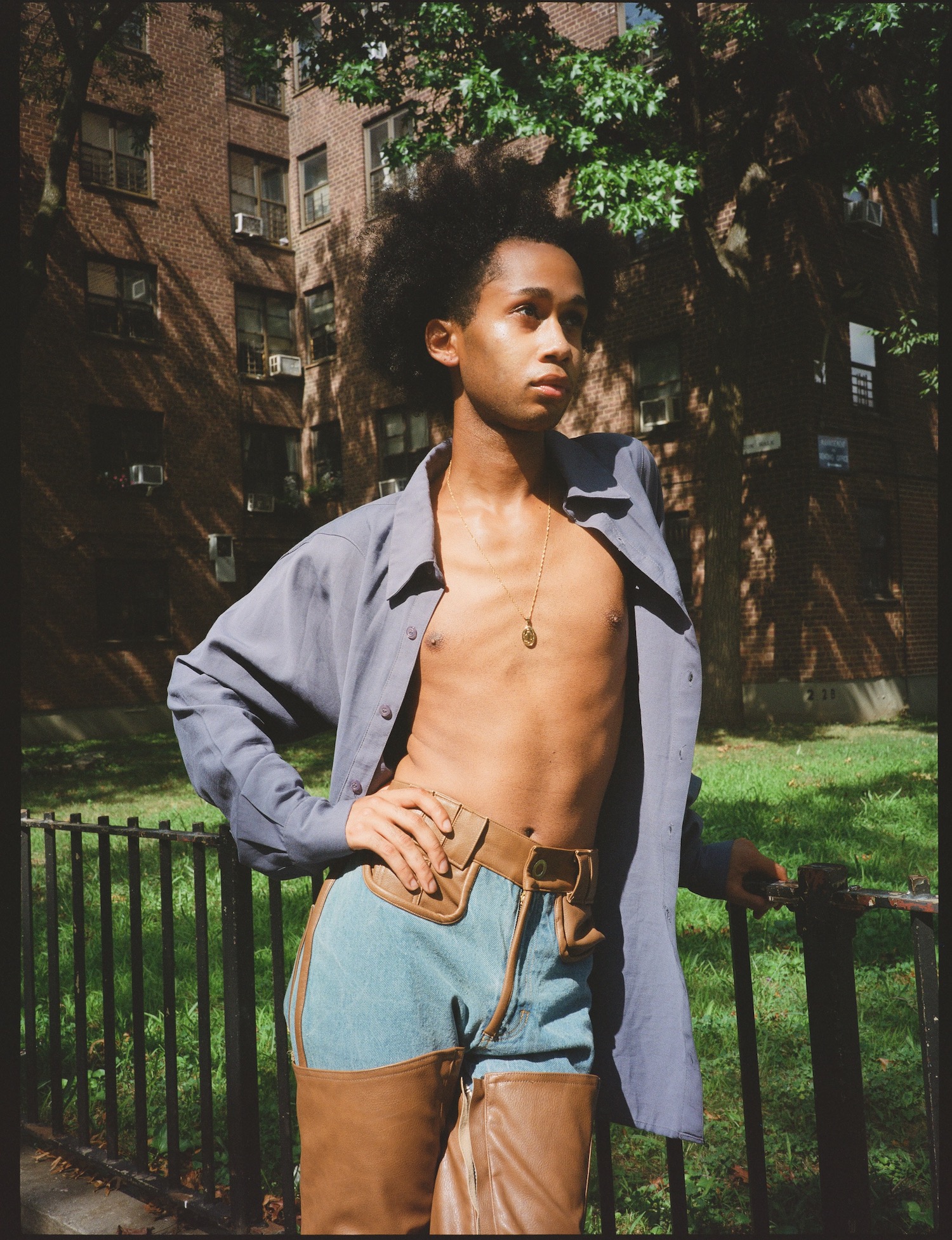
What do you do? My creative practice involves creative direction, DJing and modelling. How would you describe the atmosphere in New York right now? There’s an atmosphere of effective change. We’re currently recalibrating and navigating the appropriate route ahead. Do you feel that this summer’s protests brought any real sense of change? Yes. We are now having conversations that inevitably had to take place. Companies needed to question why they have us on board all of a sudden. Was it performative activism to save themselves? Or was it to actually make things right? We have ways to go to make the world a thoroughly inclusive safe space for us. This is an everyday struggle. What next steps do you think need to be taken? There needs to be truthful and inclusive education for the youth. The struggles we endure need to be personified, and our existence needs to be broadcast and normalised through all channels. We need to be in ALL conversations appropriately. How do you think your creativity can help bring about the changes you want to see? As a signed creative at Ford Models and RM Management, I acknowledge my duty in setting an example for those that are ostracised. My uptown Black and brown roots fuel me to manifest change and channel historical excellence and transcendence. In my work, I dig deeper than surface looks. It’s about philosophy and education. What do you most cherish about the community you’re part of?Our resilience. Our protectiveness. The love we have for each other. Us being able to be monumental and revolutionarily intelligent by working with what we have in front of us. What gives you hope for the future? There’s an opportunity for growth. We are currently emerging into mainstream conversation. As time goes on, we will have more and more freedom to live our best lives.
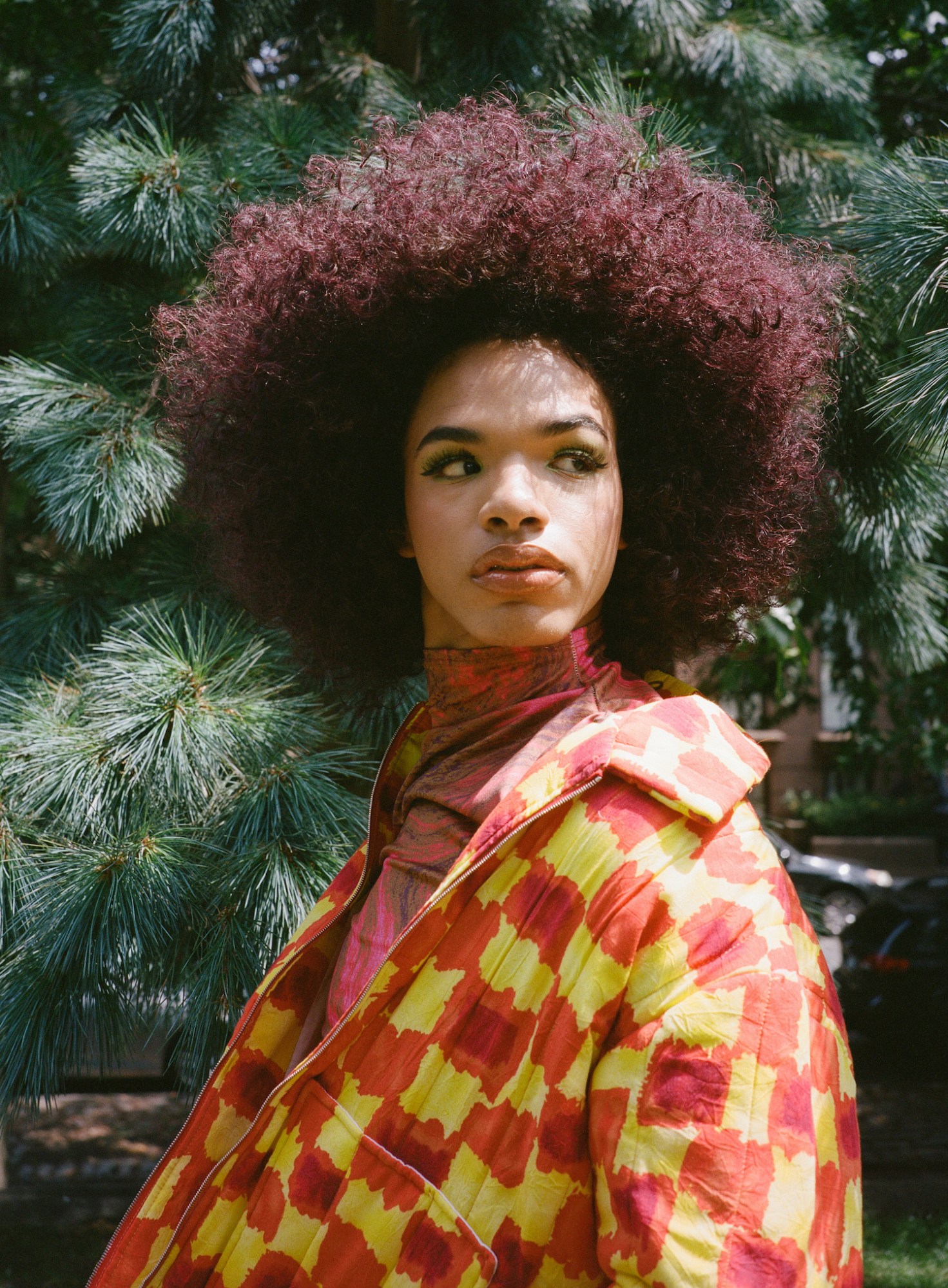
What do you do? I do comedy in a very relatable and/or educational way. The main purpose for my videos is to make people laugh and to educate them. How would you describe the atmosphere in New York right now? The city feels very united. All these different people from different backgrounds are coming together to talk about real issues that really weren’t as prominent in the mainstream as they are now. However, there has been a great divide between people because of political differences; families are having difficult conversations and this is changing perspectives on people they once looked up to. What would you say are the most critical issues affecting QTPOC in America today? There are so many issues that need to be fixed, the list is long. But the top one is recognising women to be true equals in society and making sure that trans women are seen AS WOMEN. We can start by changing our perspective on gender and stopping toxic masculine ideals. What next steps do you think need to be taken? We need accurate representation in the media, letting women of colour take the lead for once, showing America that we’re strong, smart people with the same desires and rights as anyone else. How do you think your creativity can help bring about the changes you want to see? I’m a trans woman making comedy — that in itself is exceptional, I’m pushing my way into fields in which I’m not accepted by cisgendered heterosexual people. They either think we can’t make jokes or don’t think we can contribute to the art of comedy. I want to show that creativity doesn’t have to look or be just one way; there are so many mediums in which you can express yourself, and I want to show the youth that originality is priceless and can change the world. What gives you hope for the future? Seeing younger individuals recognise each other’s pronouns and gender identities and being able to accept them.
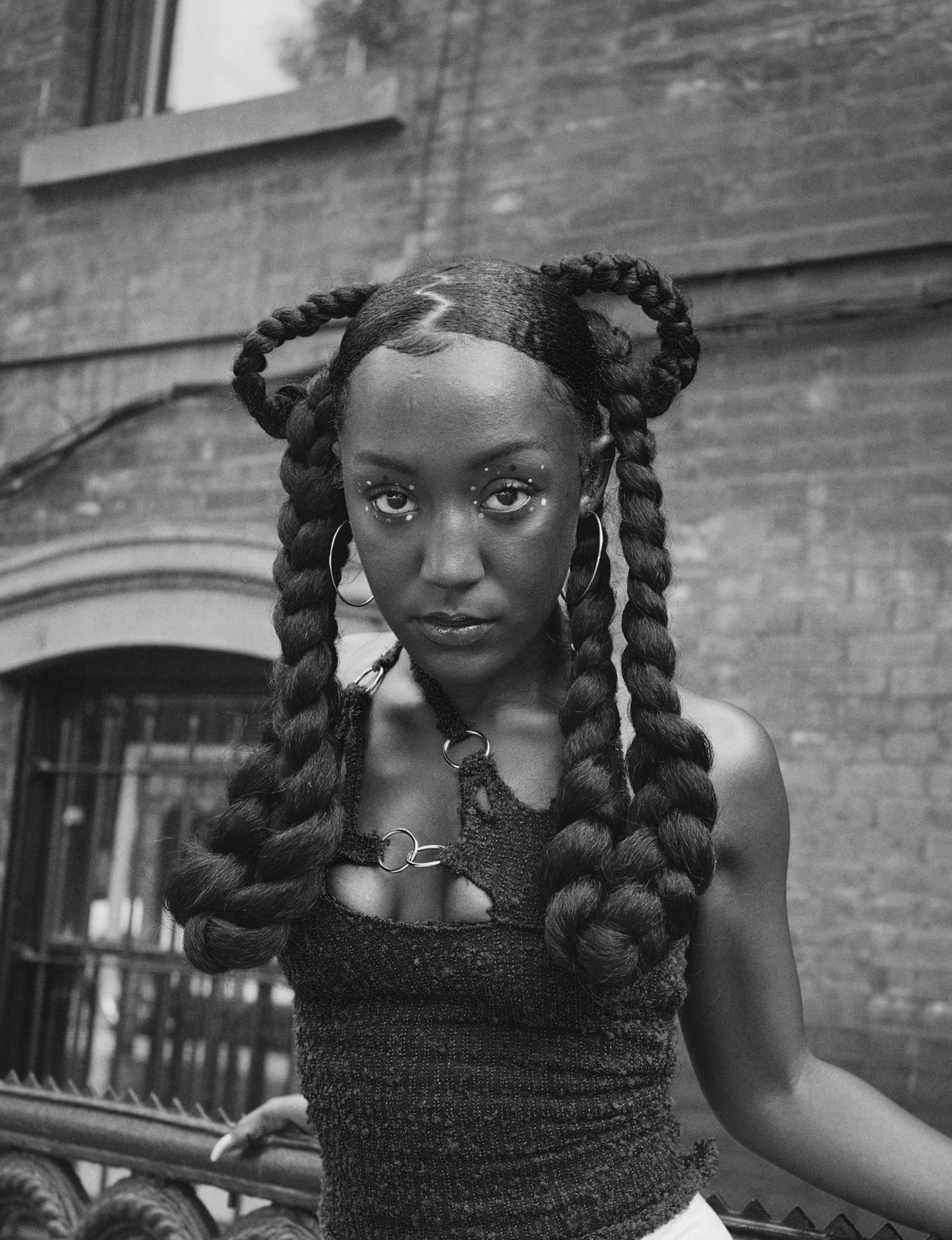
What do you do? I’m a fashion designer and creative director of my upcoming brand MAMI. How would you describe the atmosphere in New York right now? With one word: lit! Growing up in New York is about adjusting to change. Even in a pandemic, the creativity has not stopped. By leaving behind what’s unacceptable, we are creating room for innovation. Do you feel that this summer’s protests brought any real sense of change? It does but then it doesn’t. It’s beautiful seeing the community come together for something we believe in, and how much awareness it’s bringing to the world. Now that we’re living in the time of social media, we literally see deaths or wrongdoing against people who don’t deserve it everyday. It makes it hard to believe change is actually happening. What next steps do you think need to be taken? I think we seriously need to find peace within ourselves and become one with ourselves. It sounds cliché but I believe that it’s the root to everything. How can you accept other people when you still haven’t accepted yourself? How do you think your creativity can help bring about the changes you want to see? As a Trinidadian fashion designer, I’m able to bridge design and celebrating the excellence of women of colour. My creativity represents the liberation of Black business women and designers. Through MAMI, I want people to come into their own originality and authenticity. If more people out there could manifest the power to be themselves, there wouldn’t be as much hate. What do you most cherish about the community you’re part of? Our authenticity and toughness. We are made of thick skin; even against the odds, we are powerful. What gives you hope for the future? The thing that gives me hope for the future is our never-giving-up spirit. We keep pushing and expect more.
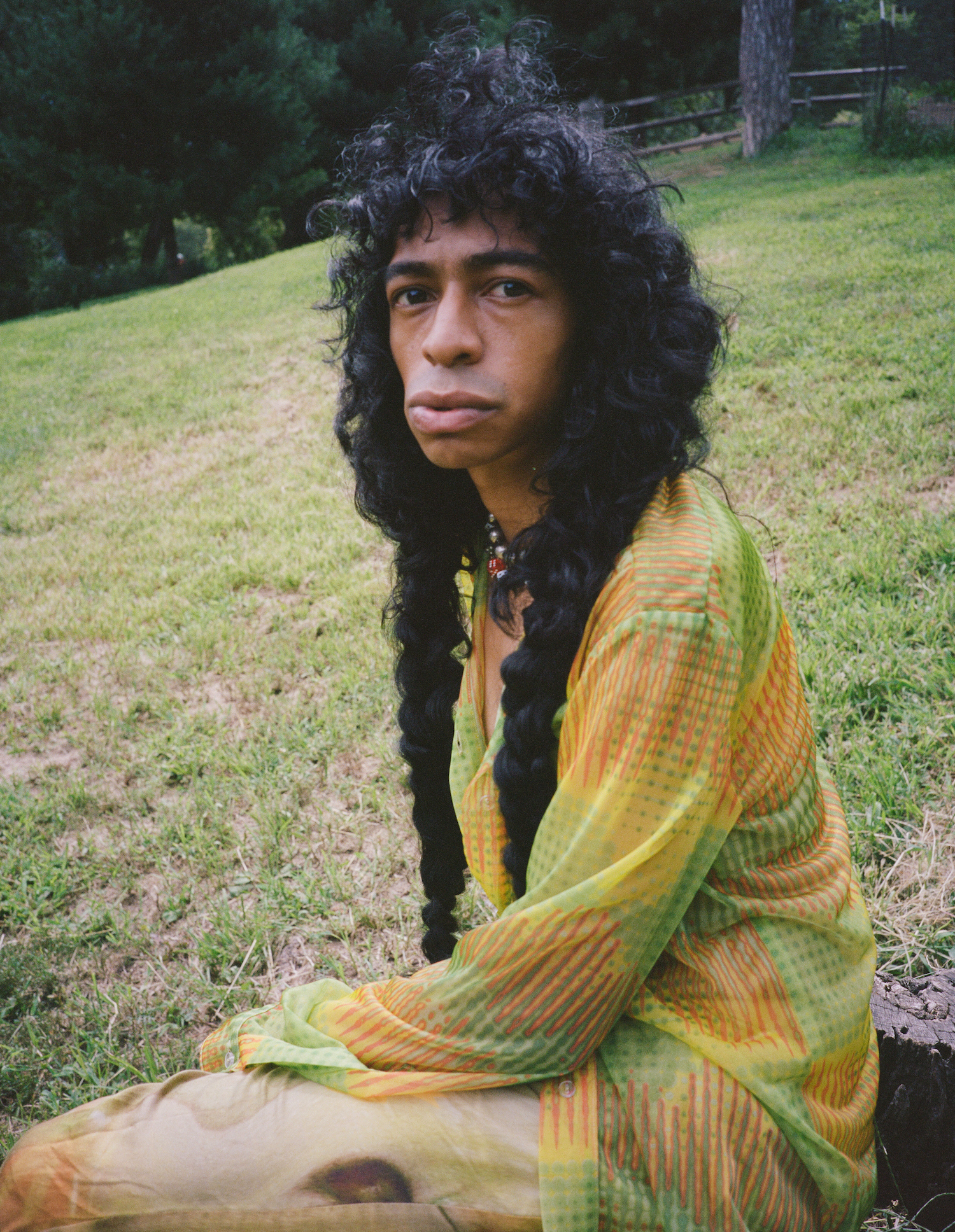
How would you introduce your creative practice? What are its main intentions? My practice is ever-changing, but the themes that correlate the most are the history and symbol of the minstrel and its relational identity to Black performance in all forms. This aspect of my work speaks to the fragility of whiteness and its enduring impact on blackness. But there are many themes that can be taken from the work that I make but I think the aspect I’d most like to reach people is humour and whimsy. I think of a lot about Black comedians and how usually a majority of the things they preach are actually quite traumatic, which usually stem from something systemic. To me, the humour in the situation usually speaks to the core truth. Your laughing whether you’ve been the victim of that situation or you’ve caused that situation, either consciously or unconsciously, whatever it may be your facing a truth. There’s definitely healing that comes from laughing about something. How do you think your creative work can contribute to manifesting the changes you want to see? Well, I’m definitely not one of those artists who claim making art is radical, because it isn’t. It’s more of a commentary of its time which is still important! I think that art does invoke change but usually, artists aren’t doing the physical labour of the change, but more so, are birthing ideas of change. I guess I’d like to see more Black artists honestly. I believe that they’re so many Black artists that don’t really know that they’re artists because of systemic racism. I hope that my contribution helps more people to see these missed and misguided opportunities, to teach weird ass Black kids that they are not only validated but that they have options besides what’s in the scraps. What role does creativity play in the future that you want to contribute to building? I think creativity is the cornerstone of learning, and that it’s often the path to knowing yourself. I think of how cartoons shape a generation, it’s very important actually, learning in a creative way. The way that each person sees themselves and relates to cartoons impacts development in such a unique way, it prompts a different release and unique revelation of character for each person. I’d like for my work to contribute to that kind of future.
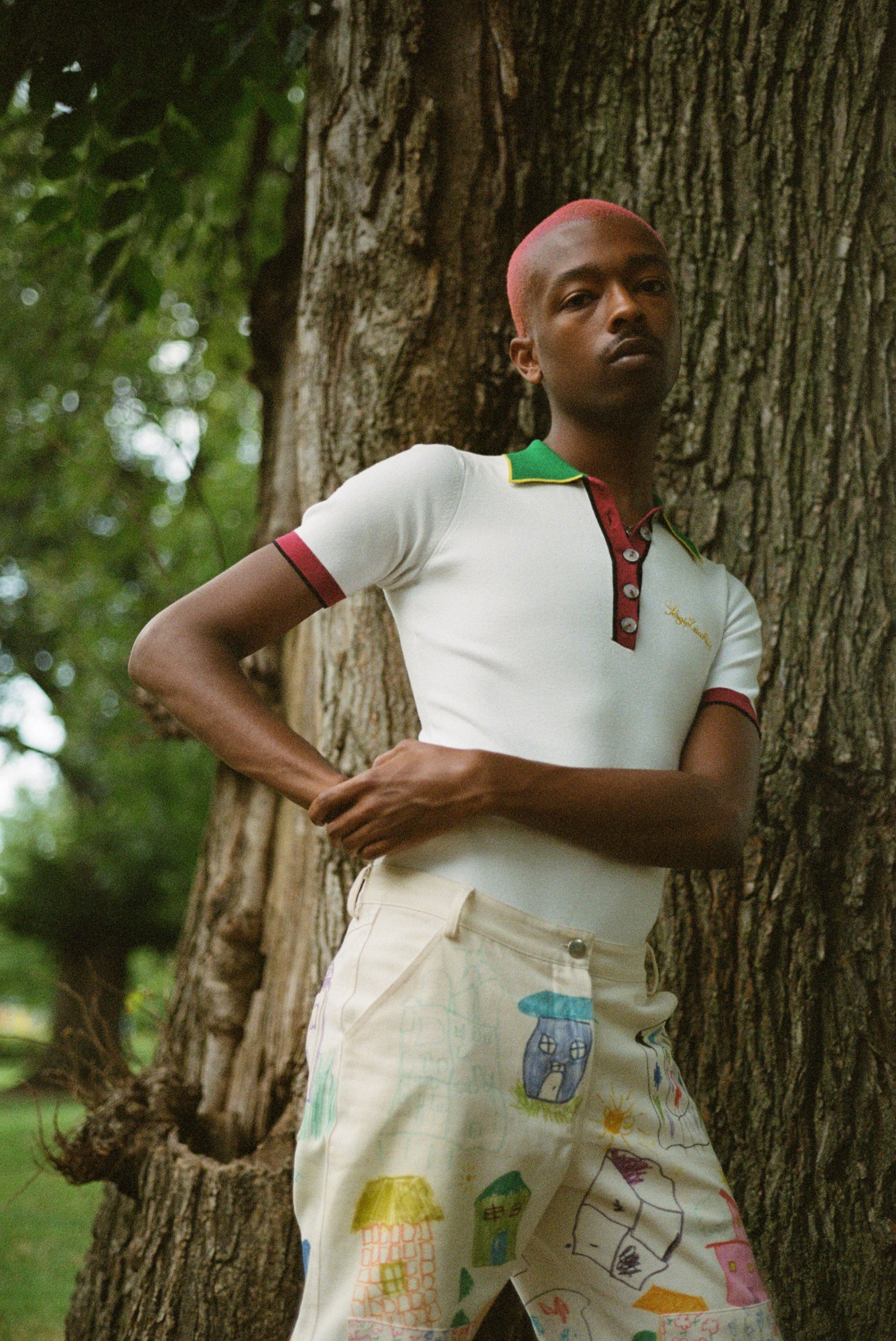
What do you do? I’m a photographer, most of my work is portraiture. I would say that the main intention with my work is to use my role as an image-maker to create better representation for black people, brown people and queer people. How do you think your creativity can help bring about the changes you want to see? I think that art, especially photography has the power to change people’s point of view. It allows you to see into someone else’s world which I believe creates empathy. What role does creativity play in the future that you want to contribute to building? I think that the future that I want to see involves a reimagining and rebuilding of a lot of the structures and traditions that we are used to seeing. It requires an open mind and a lot of creativity to be able to imagine something that doesn’t yet exist, and never has. I think that our generation is going to lead this sort of change.
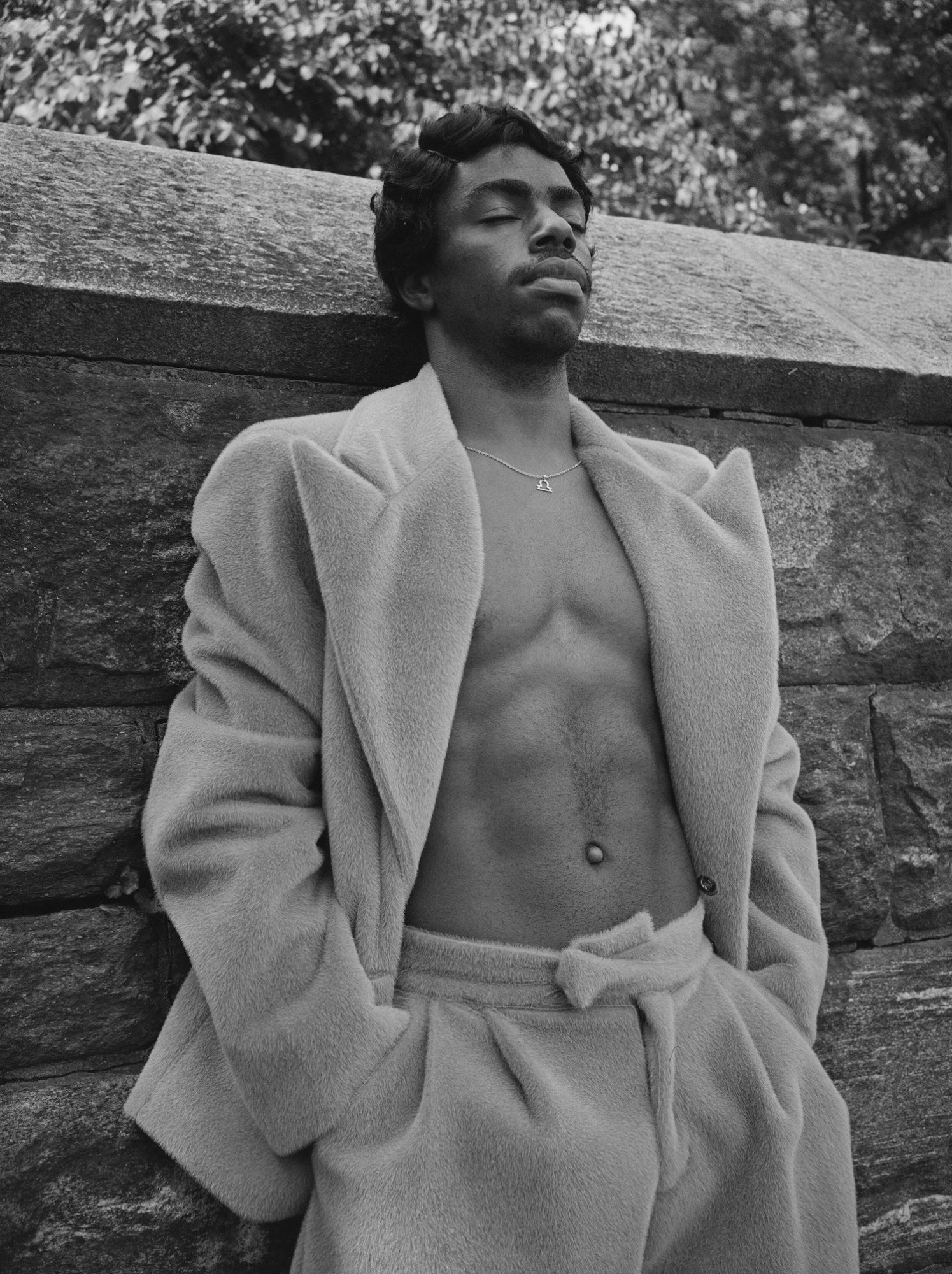
What do you do? I’m a dancer, photographer and Philly native. My work joyfully thrives in the inclusive NYC nightlife scene of musicians, models and creatives, such as Solange, Paloma Elsesser, Yahya Abdul Mateen II. How would you describe the atmosphere in New York right now? It’s very enlightening. I feel like recent events have made the people here engage with themselves and their community. What next steps do you think need to be taken? In order for America to be great, everyone needs to do their homework by researching and listening. To move forward, we need to understand what’s wrong. How do you think your creativity can help bring about the changes you want to see? My work captures the freedom and uniqueness that fuels others’ individuality and expression, and I think the depth and rawness of my photography recognises the innocence of enjoyment. My focus is on optimism and creative diversity, which is important for the attitude we want to bring into our future world. What gives you hope for the future? What gives me hope in the future is that I feel like my generation has a lot of people who wanna be leaders and understand that responsibility.
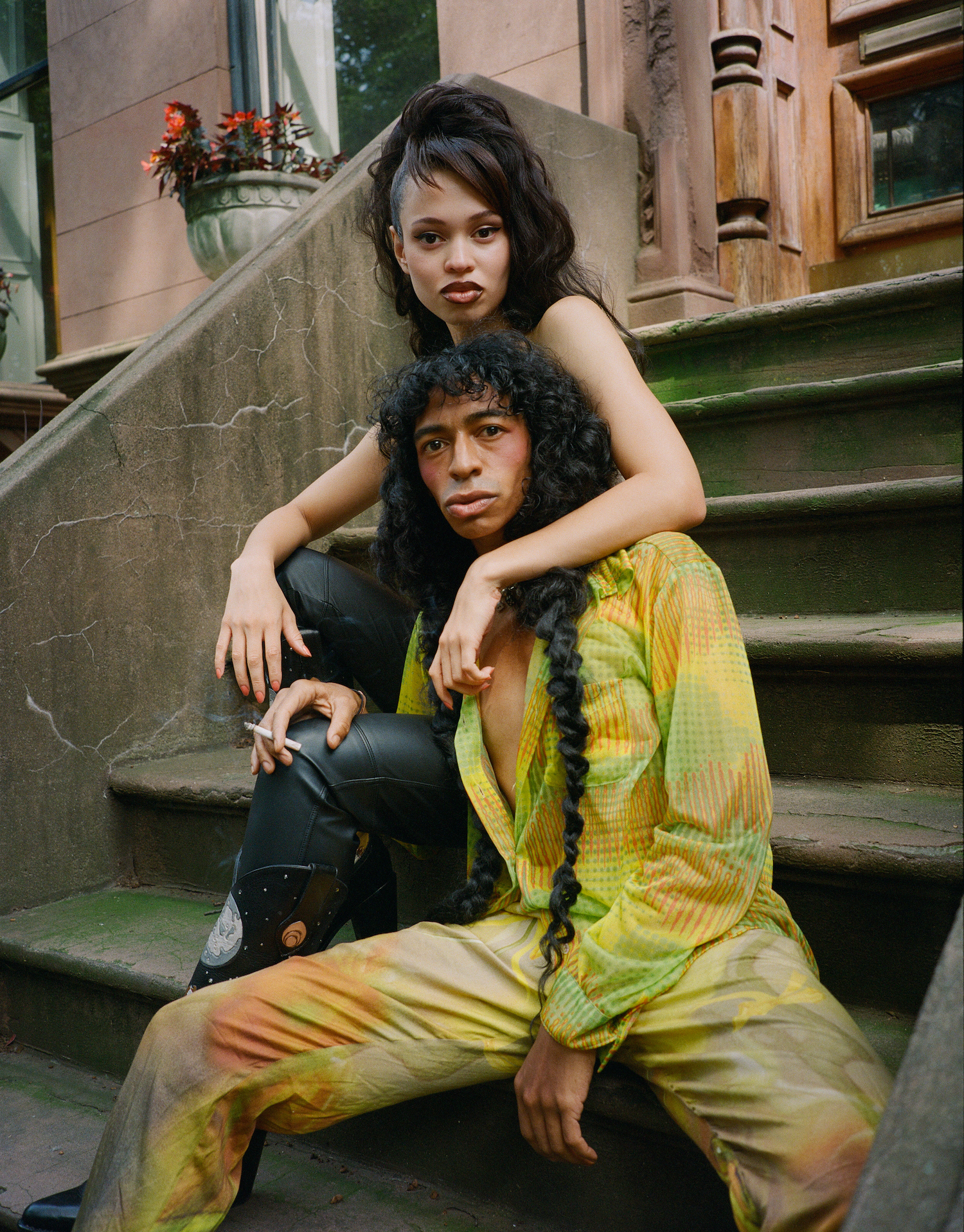
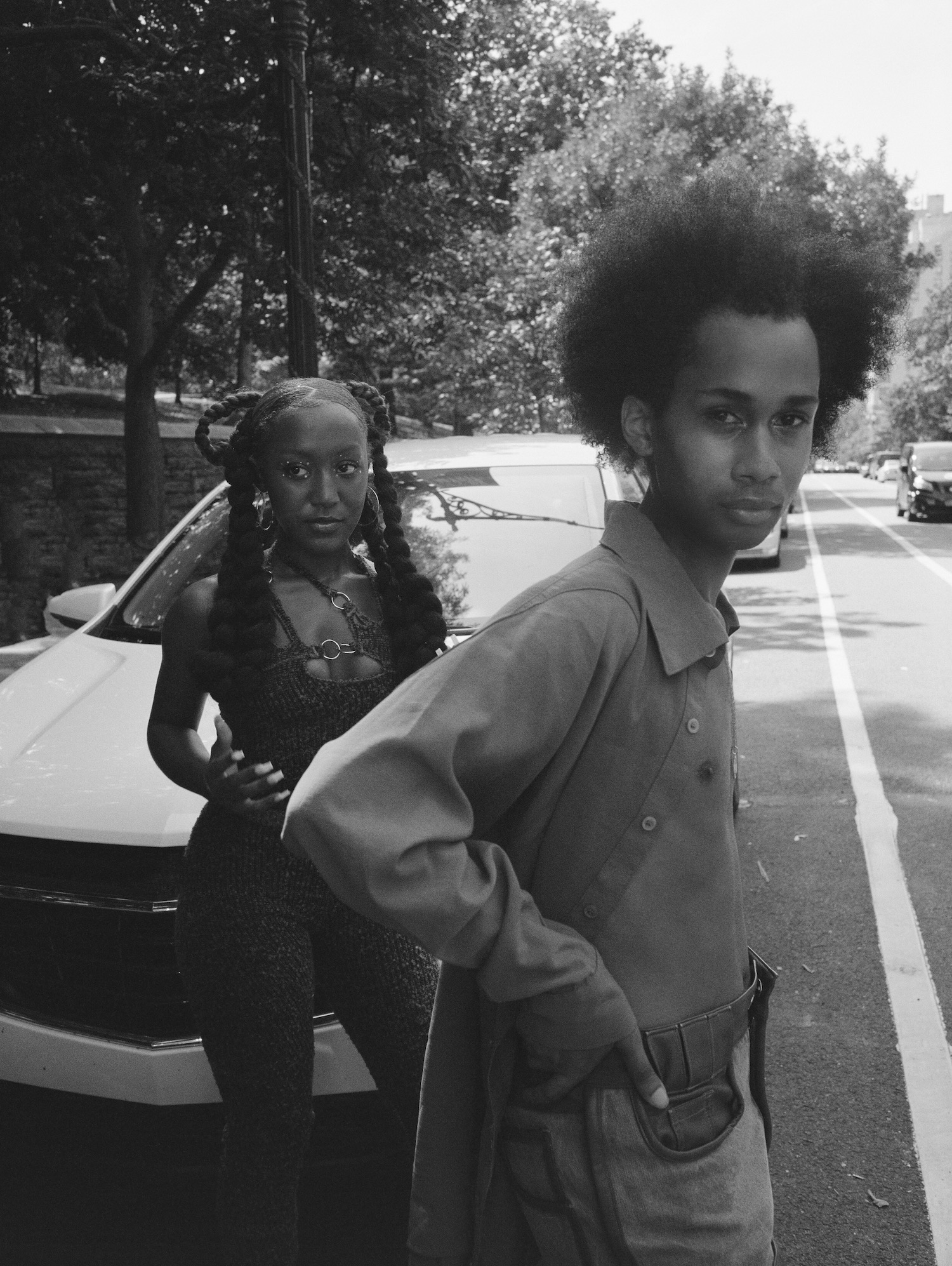
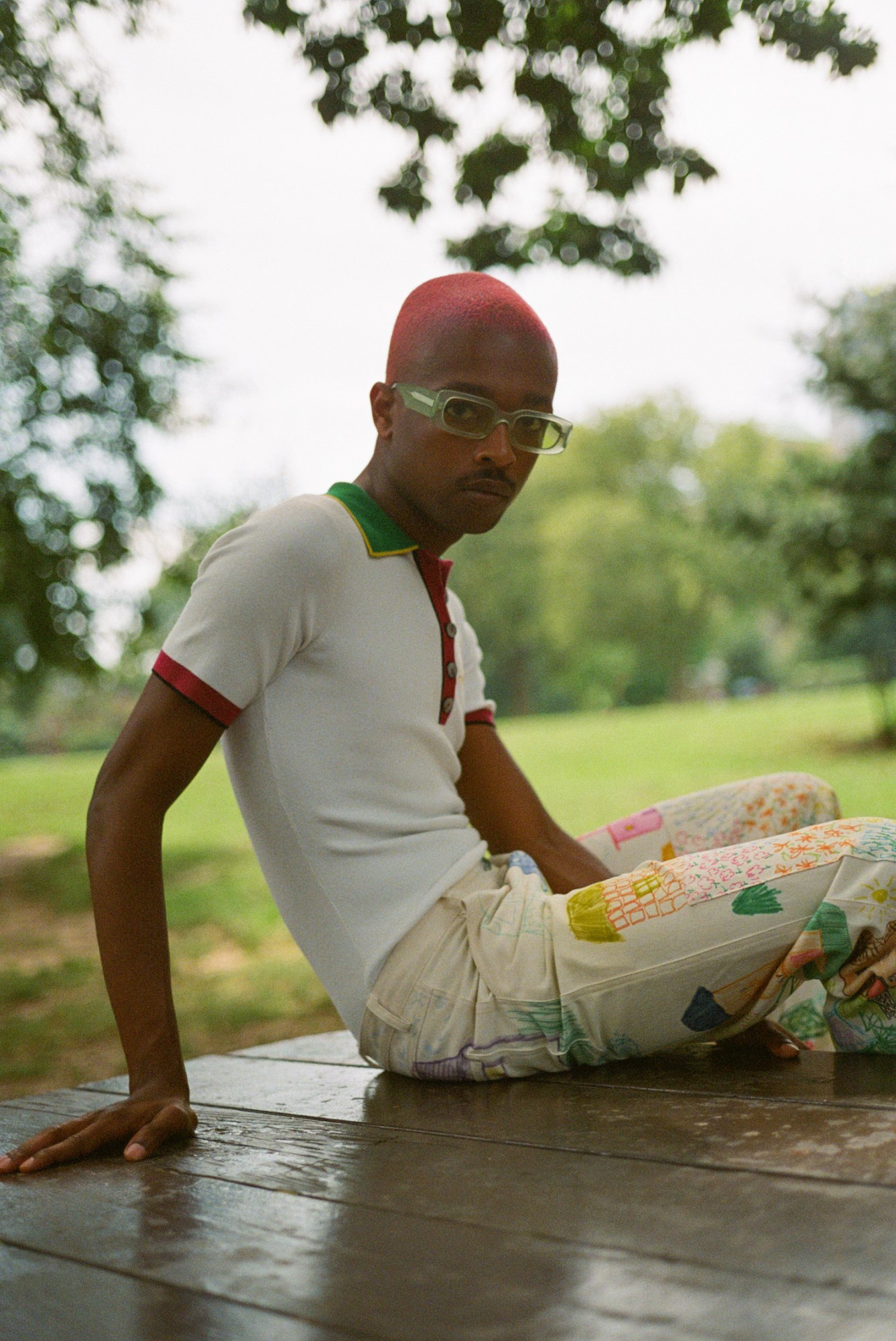
Follow i-D on Instagram and TikTok.
Credits
Photography Harshvardhan Shah
Creative/Art Direction Jamont H.
Styling Share Koech
MUA Sena Murahashi
Hair Andrita Renee
